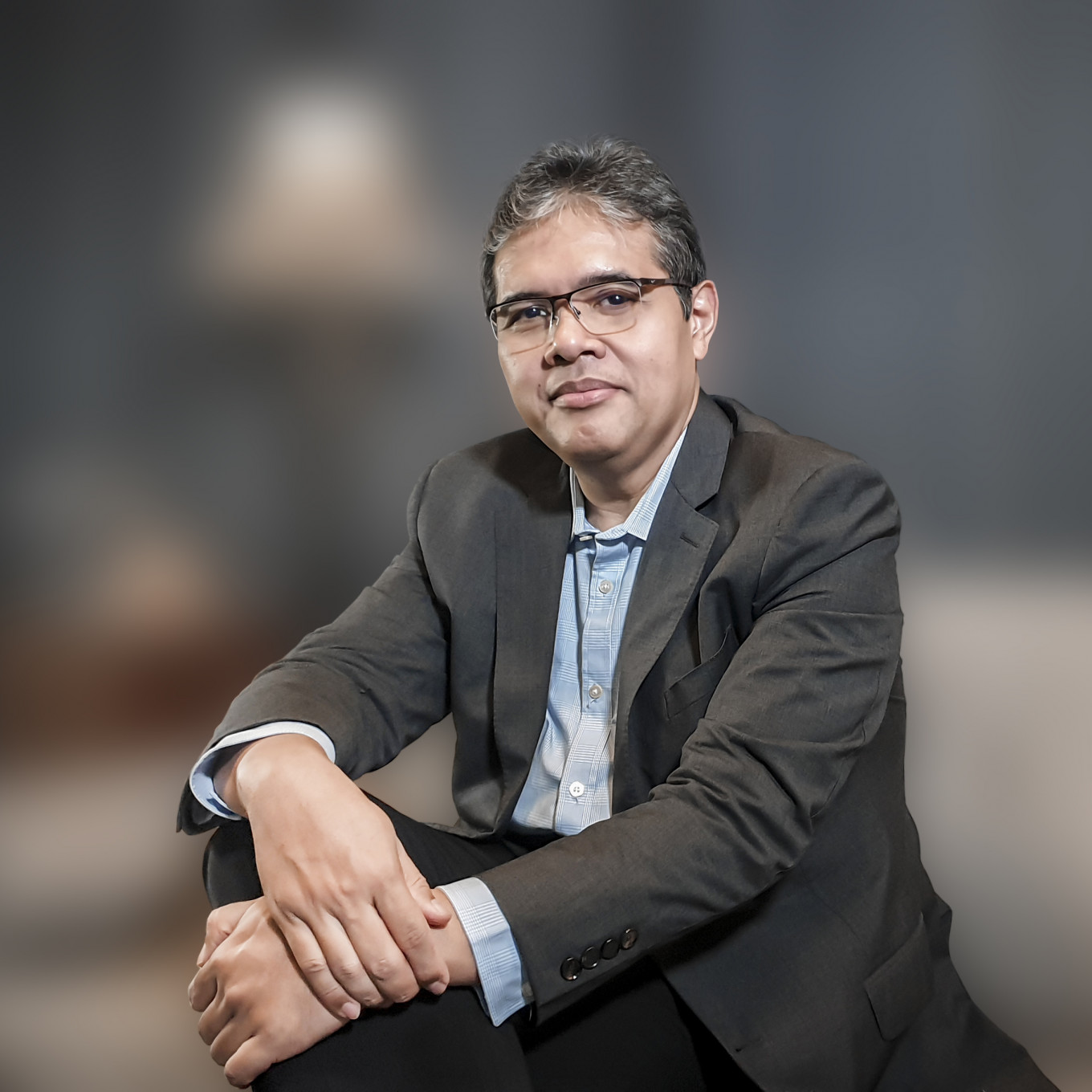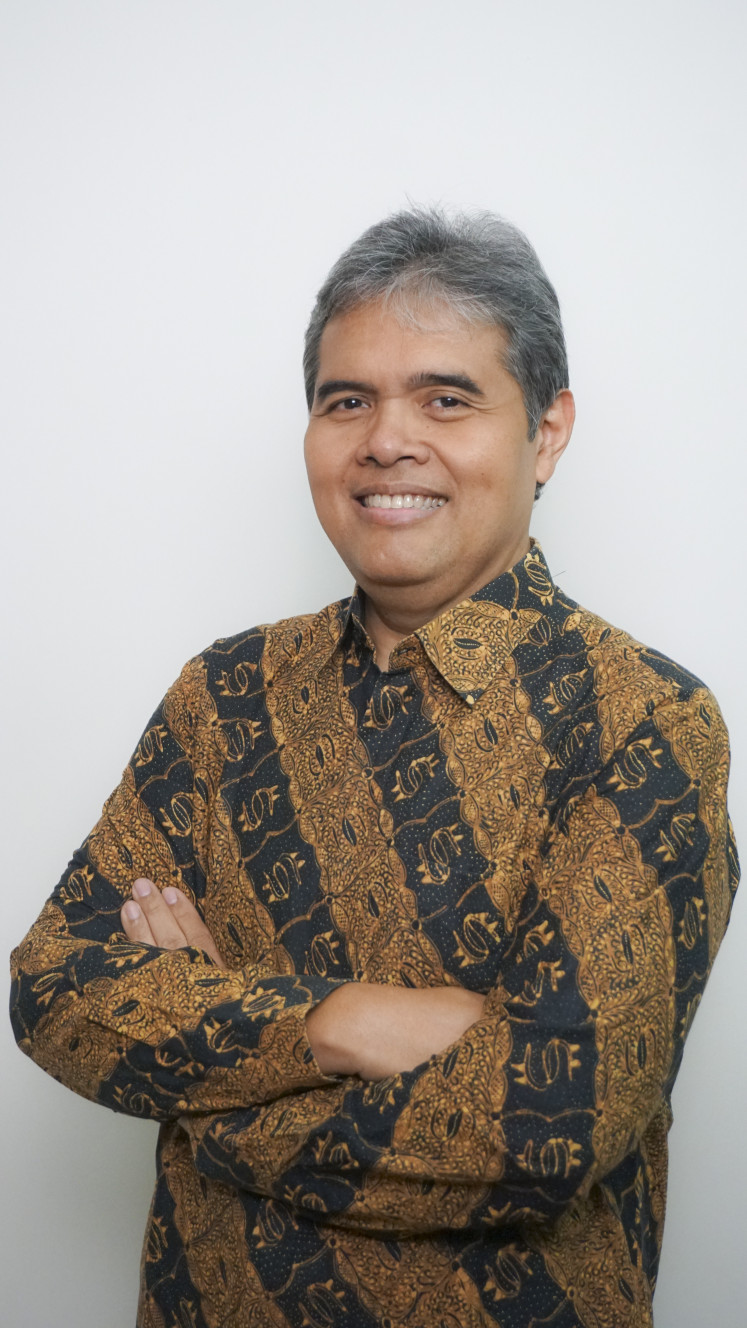Popular Reads
Top Results
Can't find what you're looking for?
View all search resultsPopular Reads
Top Results
Can't find what you're looking for?
View all search resultsWhat I’ve Learned: Yanuar Nugroho, former deputy chief of staff to the President
If activism takes a million forms, Yanuar Nugroho knows the ins and outs of 999,999 of them.
Change text size
Gift Premium Articles
to Anyone
W
hat I've Learned is a column that presents candid interviews with policymakers, artists, activists and businesspeople on facing challenges and making a difference.
If activism takes a million forms, Yanuar Nugroho knows the ins and outs of 999,999 of them. Policymaker. Academic. Mentor. Activist. Yanuar, who currently serves as the expert coordinator at the National Secretariat of Sustainable Development Goals (SDG) Implementation, has embodied all of them.
Today, Yanuar talks candidly about what it is like to leap from the ivory tower into the belly of the bureaucratic beast, why he believes in young people, and why listening might be the most meaningful part of the policymaking process.
I still remember leaving Manchester. I was holding my wife’s hand. The plane had already taken off. I had left my academic career.
Pak Kuntoro Mangkusubroto threw me in the deep end of the pool. He let me face all the challenges of dealing with senior officials. That time taught me the difference between what I learned as an academic and the real policymaking process. I remember the struggles during my first year in Indonesia, having just returned from the United Kingdom, learning how bureaucracy works, how the government works.
Without boundaries you end up with young, smart and arrogant public servants. We met the President, the Vice President and ministers. Meeting all these important people makes you feel like you are important. And I thought, “Wow, how is it that he tells me I am not important?” But that’s how you learn. There have to be boundaries.
You know the difference between people who feel important versus people who are actually important: they don't listen. Once you lose your ability to listen, that’s arrogance. Even when they are supposed to listen, they lecture.
You want people to come to you? You want to make a change? You want to really make a difference? Just listen.
You have to read Malcom Gladwell’s Blink. The first two seconds matters.
Believe in young people. They need the space to prove themselves and make an impact. With the right mentor they can thrive. You don’t feed their ego; you work with their ego. They want to feel like what they are doing is meaningful. Pak Kuntoro told me, “Remember, you will meet a lot of important people, but it’s not you who is important.”
My activism comes from a place of hope. Any involvement or engagement, where it comes from, is not my concern. I very rarely question people’s motivation.
Activism for me is a concerned citizen willing to take action no matter how small or how big within their limits, knowledge and influence. We are not just inhabitants of these islands; we should be concerned citizens.
I am an academic and an activist. Bureaucracy is a means, never an end.
As an academic I was inspired by Antonio Gramsci’s The Prison Notebooks. He conceptualized that there are two types of intellectuals: “ivory tower intellectuals” who live secluded from society and “organic intellectuals” who live with society. To me, it is important for educated scholars to feel the pain of society. That’s why in Manchester, every Thursday for one hour, from 12 to 1, I made myself free and worked as a mentor for anyone who was interested in discussing ideas.
We are all wounded. Anger from the past [...] trauma […] but you know what healing is? Healing is not the absence of the wound, but the ability to embrace the wound. The wound will always be there. It’s like bravery. Bravery is not the absence of fear, but the ability to embrace it.
I think the way we see the government needs to be revisited. You need to look deeper; you need to know the people. If there is a perception from outside that says government officials are corrupt, government officials are not innovative, government officials are ineffective, not all of them are like that. If you see the government like that, you will never change anything.
I don’t entertain “what if” questions. This is my reality. My responsibility is to create and shape my own future.
I’m a foresighter. I don’t believe in forecasting. I don’t believe in predictions. The future must be shaped. The future is not predicted, it is shaped. If you don’t shape it, you will live in someone else’s future.
I left the Office of the President in 2019 because I wanted to focus on my family and academic work. I joined the ISEAS-Yusof Ishak Institute in Singapore and took a senior fellowship at the Lee Kuan-Yew School of Public Policy. Then the government asked me to come back and lead the expert team for SDG at Bappenas.
Pak Luhut Pandjaitan let me build my own team at the Office of the President. And I am biased. I believe in young people. So that was how I chose my team. And because I was a lecturer at the university. But Pak Kuntoro inspired me, because when he called me away from the UK, to come and work for the government he said, “I can’t match your salary as a lecturer in the UK, but I want to give you a chance to help this country, to make this country better.” Those are the same words I used when I recruited my team at the Office of the President.
The little things matter. For example, on my team now, at Bappenas, we celebrate everyone’s birthday. I make the effort, I get a cake or nasi tumpeng. A lot of people will think this doesn’t matter. But it matters to me. It matters to people.
The small things can glue the team together.
Righteous Mind, by Jonathan Haidt, if I could recommend any book to Pak Jokowi, if I had a minute with the President, I would ask him to read that book.
A policymaker doesn’t have time to digest a research report just to get the policy implications. Good policy brief is two pages, four pages, a clear analysis and problem statement derived from good research.
Any good research answers three questions. First, ontology: What is state of the art? What is the knowledge about the essence of something you want to research? Second, epistemology: Why did things manifest into what they are now and how? And finally, axiology: the implications, the so-what part […] Implication to knowledge, implication to practice and policy implications. When you do research, your job is to get published […] to get people to understand. But when you work for advocacy, your research must help you improve policy.












